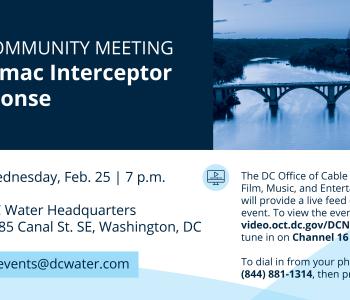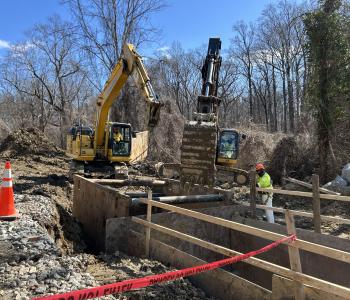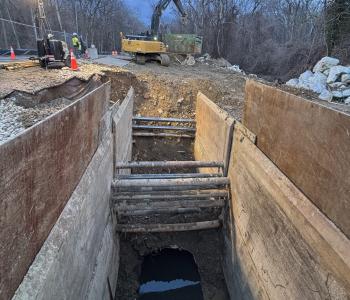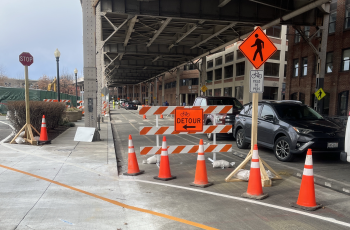WASA Receives First Place US EPA Award For Exemplary Biosolids Management Program
Washington, DC The District of Columbia Water and Sewer Authority (WASA) has received top honors for its Biosolids Management Program. Benjamin Grumbles, Assistant Administrator, US Environmental Protection Agency (EPA), presented WASA General Manager Jerry N. Johnson and Biosolids Manager Christopher Peot with the agencys 2005 National First Place Clean Water Act Recognition Award.
The presentation ceremony was held Monday, October 31, 2005 during the 78th Annual Water Environment Federations Technical Exhibition and Conference (WEFTEC.05) at the Washington Convention Center. This award recognizes outstanding operational projects, research, technological advances, and public acceptance efforts for promoting the beneficial uses of municipal wastewater biosolids.
We are extremely proud of our Biosolids Management Program and honored to be recognized by EPA, said Johnson. The award distinguishes our program as a national leader in biosolids management and a model for the smart, environmentally friendly recycling of waste products.
WASA is a nationally recognized leader in advanced wastewater treatment technologies and research. Earlier this year, WASAs Biosolids Management Program was nationally certified by the prestigious National Biosolids Partnership (NBP), a nonprofit alliance formed in 1997 to promote environmentally sound and accepted biosolids management practices. This certification positioned WASAs biosolids program as the first on the East Coast and only the fifth nationally to receive such a distinction.
Biosolids are treated residue left over from the sewage treatment process. Once the wastewater is processed, the solids that settle at the bottom of the tank are collected and undergo a series of chemical treatments and biological transformations. The complex organic molecules decompose, killing most of the pathogens.
Each day, more than 1,200 wet tons of these nutrient-rich biosolids are hauled from the Blue Plains Advanced Wastewater Treatment Plant and reused through a diverse land application program that improves the soil for agricultural production and many other projects. The stabilized biosolids are then applied as fertilizer and mulch to farmlands throughout Virginia.
Its very rich in nitrogen and, as a result, our farmers dont have to buy as much inorganic fertilizer, Peot says. Were actually helping them stay in business.
The District of Columbia and WASA are hosting WEFTEC.05, with more than 17,000 water quality professionals attending the event from October 29 - November 2, 2005.
###







